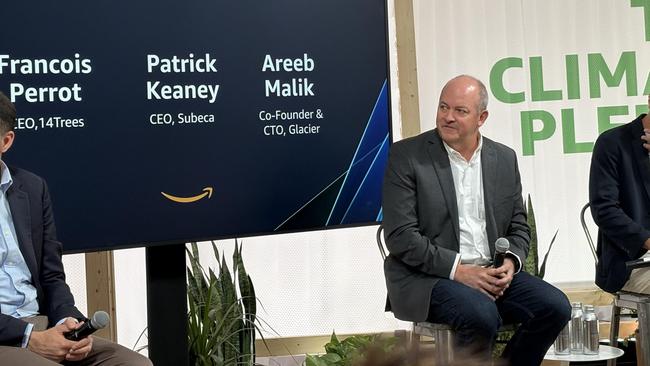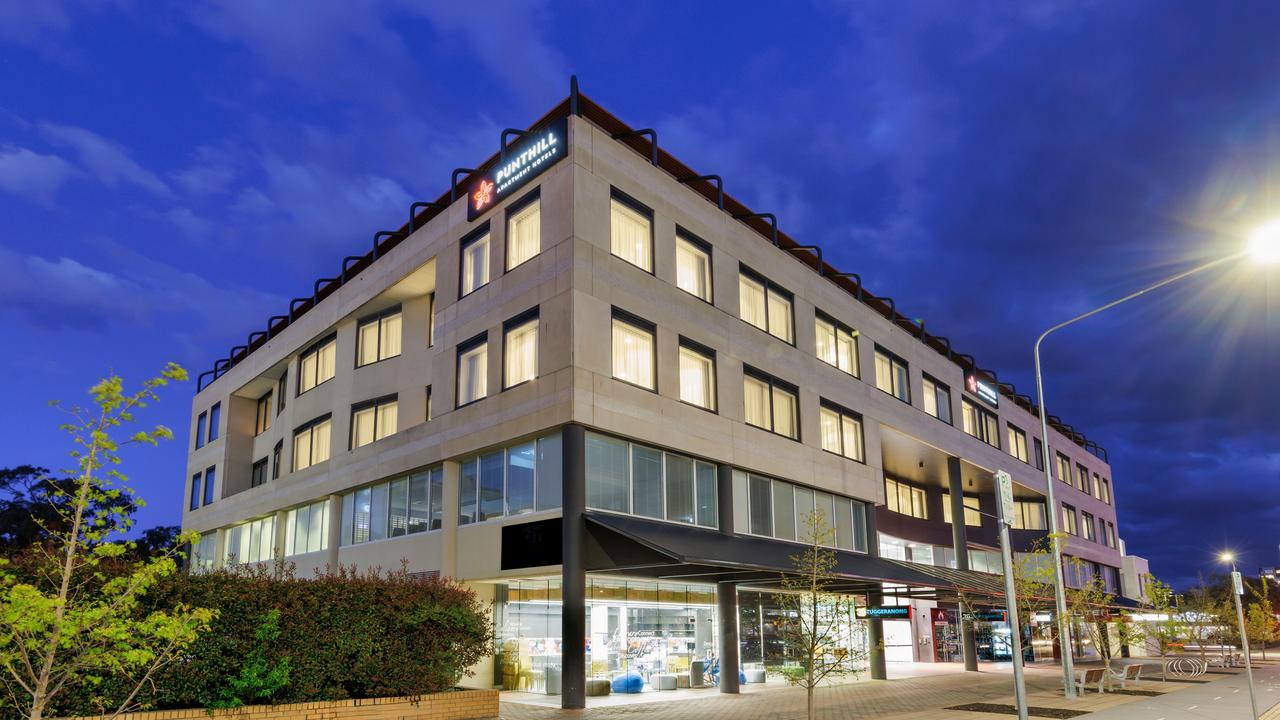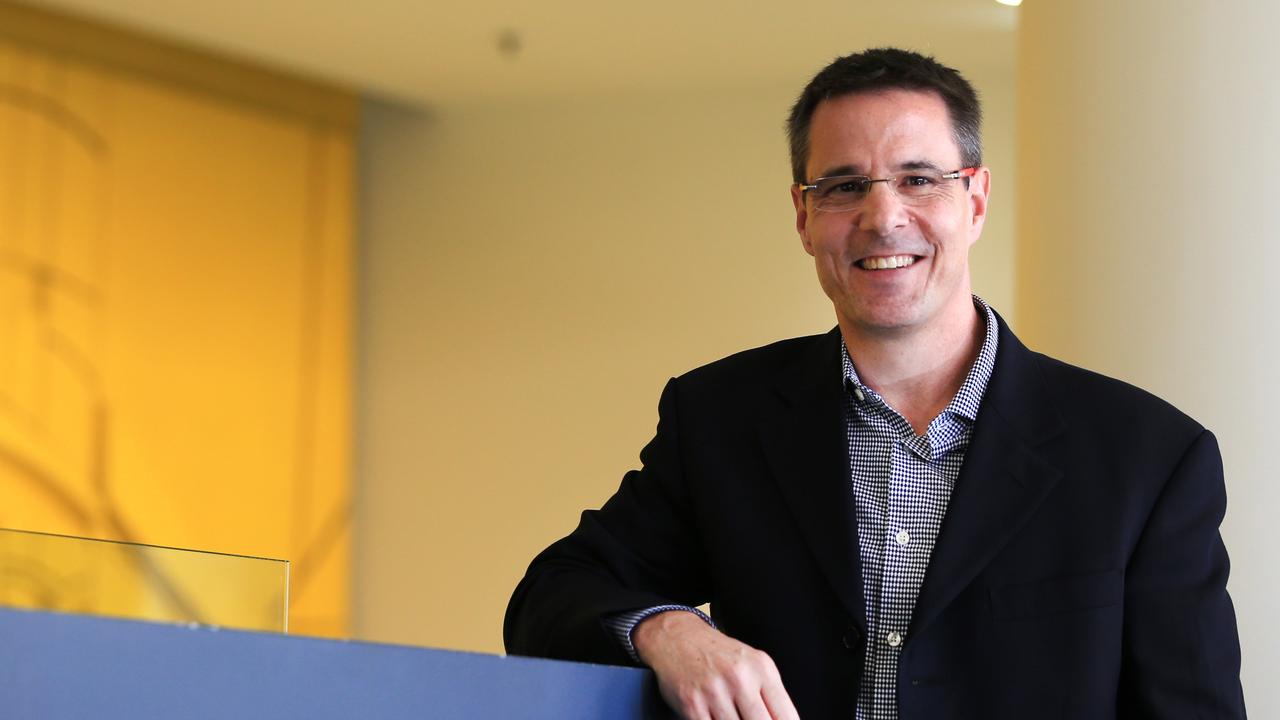‘Chinese tech shouldn’t exist in critical infrastructure’, says US entrepreneur
Patrick Keaney, who has received backing from Amazon’s climate fund, says governments must “protect and harden” critical infrastructure such as power grids, water utilities and hospitals.

Business
Don't miss out on the headlines from Business. Followed categories will be added to My News.
Chinese-made technology shouldn’t exist in critical infrastructure like solar panels and batteries which form the distributed energy grid, says an entrepreneur who has received backing from Amazon’s $US2bn ($2.96bn) climate fund to make the tech behemoth greener.
Patrick Keaney, chief executive of Subeca — which has developed a device to better manage water use —, said “every country and every region” needs to think about how they are “protecting and hardening their critical infrastructure” from potential cyber attacks.
And he said US-based cloud providers could play a key role in bolstering defences.
While Australia is facing no current threats, concerns have been mounting about a lack of security on smart home devices, particularly solar batteries, exposing the country to attacks from bad actors.
Energy Renaissance founder Brian Craighead says home and commercial battery storage systems were vulnerable to Israel-style exploding pager strikes, warning software which prevents batteries from overcharging could be hacked, triggering explosions and wiping out large sections of Australia’s electricity grid.
Rachael Falk, chief executive of the Cyber Security Co-operative Research Centre and Senator James Paterson are also concerned.
In the US, the Biden administration has announced a ban on the use of internet cars containing Chinese software and hardware on American roads amid fears they could be used to cause accidents or allow hackers to infiltrate critical infrastructure.
Australia won’t ban Chinese EVs
But, Climate Change Minister Chris Bowen says Australia will not follow suit, saying he wants Australians to access as many clean vehicles as possible. He has gained an ally in Uber, which has signed a partnership with Chinese electric vehicle maker BYD, to offer discounts to drivers in an effort to slash carbon emissions across its fleet.
But, Mr Keaney said EVs needed to be included in plans to protect and harden critical infrastructure, saying potential hacks were a “legitimate concern”.
“In many cases, an IoT (internet of things) module, the IoT communications module a lot of these are being produced in China,” Mr Keaney told The Australian on the sidelines of Amazon’s Delivering the Future event in Nashville.
“Here’s the basic fact, we know that the Republican Party and the Democrat Party in the United States don’t get along, and they don’t agree on much, but what they do agree on is that Chinese made technology shouldn’t exist in critical infrastructure, and I happen to agree with that,” Mr Keaney said.
“Let’s take a look at the distributed energy grid. EVs (electric vehicles), solar panels, wind farms, that sort of thing. There are a lot of IoT technology out there. I think there is a legitimate issue to say how we are going to protect critical infrastructure.”
US broadband and water services hacked
Last week a cyber attack tied to the Chinese government penetrated the networks of a swath of US broadband providers, potentially accessing information from systems the federal government uses for court-authorised network wire-tapping requests.
The US’s biggest water utility, American Water, said it also had been hit by a cyber attack.
“It is a big concern. Say you had an event going on like a hurricane, then you could actually adversely affect some of the critical infrastructure out there. You could compound that issue in a way that’s really dangerous,” Mr Keaney said.
Asked if he specially shared Mr Craighead’s concern about exploding home and commercial batteries, Mr Keaney said: “I wouldn’t say my concern level is zero on this”.
“A lot of people say, ‘well, I’m just simply going to air gap my technology. I’m not going to connect it. Those days have sailed.
“I mean, it’s very, very hard to say I'm going to go and find an energy facility or a solar facility or a water facility that’s air gapped. They’re not air gapped anymore. So what do you do?”
US cloud providers can help
Mr Keaney said the big US-based cloud providers could help smaller companies bolster their defences.
“Not to have a commercial for AWS (Amazon Web Services) but moving to cloud technology where a lot of this stuff is managed at a super secure level … a small facility could never manage it like that.
“I think one of those things that is a big positive for me is moving to cloud technology in order to harden critical infrastructure.”
Subeca received backing from Amazon’s $US2bn Climate Pledge Fund, which was launched in 2020 to invest in companies which can help Amazon — and other companies — reach its goal to achieve net-zero carbon emissions by 2040.
Subeca — one of 31 companies which has received Climate Pledge funding — has developed a secure device which uses wireless networks to help Amazon, and its subsidiary Amazon Web Services, gather timely and reliable data to manage water use and detect leaks without relying on traditional cellular or building network infrastructure.
Amazon is looking to improve the efficiency of its water use across its fulfilment centres, grocery stores, offices, and data centres using Subeca’s single-device ultrasonic smart water meter, which is installed without cutting a pipe.
The author travelled to Nashville as a guest of Amazon.
More Coverage
Originally published as ‘Chinese tech shouldn’t exist in critical infrastructure’, says US entrepreneur
Read related topics:Climate Change





